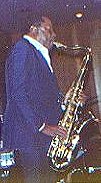
Edward F. Davis, known professionally as Eddie "Lockjaw" Davis, was an American jazz tenor saxophonist. It is unclear how he acquired the moniker "Lockjaw" : it is either said that it came from the title of a tune or from his way of biting hard on the saxophone mouthpiece. Other theories have been put forward.
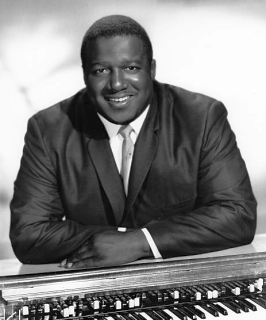
Richard Arnold "Groove" Holmes was an American jazz organist who performed in the hard bop and soul jazz genre. He is best known for his 1965 recording of "Misty".
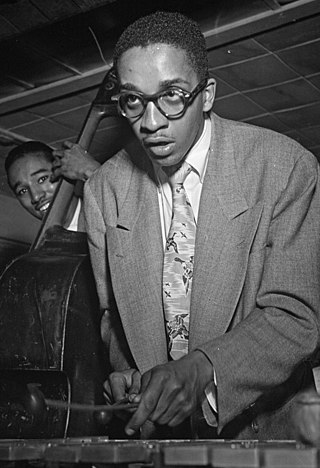
Milton Jackson, nicknamed "Bags", was an American jazz vibraphonist. He is especially remembered for his cool swinging solos as a member of the Modern Jazz Quartet and his penchant for collaborating with hard bop and post-bop players.

Billy Higgins was an American jazz drummer. He played mainly free jazz and hard bop.

Melbourne Robert Cranshaw was an American jazz bassist. His career spanned the heyday of Blue Note Records to his later involvement with the Musicians Union. He is perhaps best known for his long association with Sonny Rollins. Cranshaw performed in Rollins's working band on and off for over five decades, starting with a live appearance at the 1959 Playboy jazz festival in Chicago and on record with the 1962 album The Bridge.
John Patton was an American jazz, blues and R&B pianist and organist often known by his nickname, Big John Patton.

Kenneth Earl Burrell is an American jazz guitarist known for his work on numerous top jazz labels: Prestige, Blue Note, Verve, CTI, Muse, and Concord. His collaborations with Jimmy Smith were notable, and produced the 1965 Billboard Top Twenty hit Verve album Organ Grinder Swing. He has cited jazz guitarists Charlie Christian, Oscar Moore, and Django Reinhardt as influences, along with blues guitarists T-Bone Walker and Muddy Waters.

Raymundo "Ray" Barretto Pagán was an American percussionist and bandleader of Puerto Rican descent. Throughout his career as a percussionist, he played a wide variety of Latin music styles, as well as Latin jazz. His first hit, "El Watusi", was recorded by his Charanga Moderna in 1962, becoming the most successful pachanga song in the United States. In the late 1960s, Barretto became one of the leading exponents of boogaloo and what would later be known as salsa. Nonetheless, many of Barretto's recordings would remain rooted in more traditional genres such as son cubano. A master of the descarga, Barretto was a long-time member of the Fania All-Stars. His success continued into the 1970s with songs such as "Cocinando" and "Indestructible". His last album for Fania Records, Soy dichoso, was released in 1990. He then formed the New World Spirit jazz ensemble and continued to tour and record until his death in 2006. He is the father of American vocalist and saxophonist Chris Barretto, best known for his work with Periphery and Monuments.

Grady Tate was an American jazz and soul-jazz drummer and baritone vocalist. In addition to his work as sideman, Tate released many albums as leader and lent his voice to songs in the animated Schoolhouse Rock! series. He received two Grammy nominations.
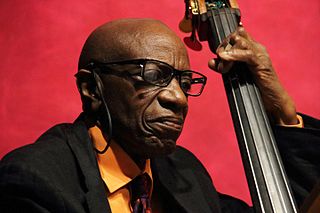
Reginald "Reggie" Workman is an American avant-garde jazz and hard bop double bassist, recognized for his work with both John Coltrane and Art Blakey, in addition to Alice Coltrane, Mal Waldron, Max Roach, Archie Shepp, Trio Three, Trio Transition, the Reggie Workman Ensemble, and collaborative projects with dance, poetry and drama.

Bennie Green was an American jazz trombonist.

Herman "Junior" Cook was an American hard bop tenor saxophone player.

Eugene McDuffy, known professionally as "Brother" Jack McDuff or "Captain" Jack McDuff, was an American jazz organist and organ trio bandleader. He was most prominent during the hard bop and soul jazz era of the 1960s, often performing with an organ trio. He is also credited with giving guitarist George Benson his first break.

George Duvivier was an American jazz double-bassist.
Melvin Sparks was an American soul jazz, hard bop and jazz blues guitarist. He recorded a number of albums for Prestige Records, later recording for Savant Records. He appeared on several recordings with musicians including Lou Donaldson, Sonny Stitt, Leon Spencer and Johnny Hammond Smith.
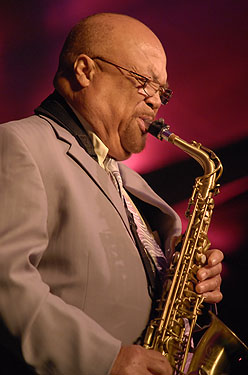
James Wesley "Red" Holloway was an American jazz saxophonist.
Samuel David Bailey was an American jazz drummer.
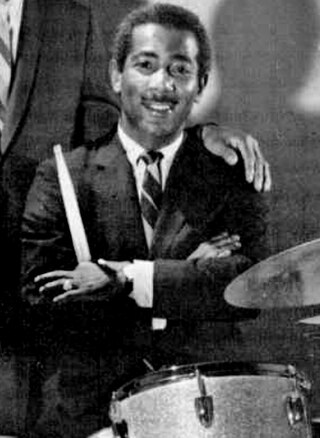
Oliver Jackson, also known as Bops Junior, was an American jazz drummer.
Ben Dixon was an American jazz drummer.
This is the discography for American jazz musician Grant Green.














